Up from Lockdown
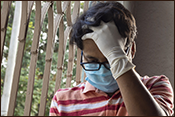
I’m still in lockdown. This is because I’m living with someone who is in a vulnerable category, and another person who has a letter saying they are are “shielded”. The letter goes so far as to say that they cannot leave the house.
So, if I venture out, I have to put on a pair of latex gloves and a surgical mask to cover my face. Upon my return, I have to dump all my clothes into the washing machine and take a shower. I’ve never been cleaner; that said, my skin could be used to sand down the hull of a rusty tugboat.
If the world outside is at a distance, at least I am able to access it via the internet. My parents and I call each other via FaceTime twice a day. Because they are based in New York, we share notes on which country is the most insane. My father will cite the people who are burning 5G towers in the United Kingdom; in response, I ask if the President still wants people to inject themselves with bleach. My father will talk about Boris Johnson, I can reply with talk about Trump taking hydroxychloroquine despite having no symptoms and the Governor of Georgia, Brian Kemp, who seems to think tattoo parlours provide an essential service. We concur that it’s crazy for people to hold beach parties and raves. No matter how bad the United Kingdom and United States seem, however, my parents and I agree that Brazil is by far the worst. President Bolsonaro does not appear to be particularly concerned about the coronavirus and indeed wants people to go out to protect the economy. The street gangs in Brazil’s notorious favela neighbourhoods are more responsible than he: they have apparently been trying to get people to stay at home. Their grasp of economics is superior to the President’s: he has yet to realise that dead people generate no revenue.
Additionally, my parents and I discuss things we would like to do. Yes, it would be great if one day we could have Christmas in New York again. But we know that the airports are empty, and only essential travel is being permitted. Quarantine rules will likely come into effect in the United Kingdom shortly. In my mind’s eye, I can see a lonely traveler wheeling a single case through the emptiness of Heathrow Terminal 5. Will this ever be back to normal? Perhaps. But perhaps it has been diminished for years to come. The virus did not come to Europe via the Silk Road, like the Black Death, rather it was likely the connection from Wuhan to Beijing to Rome to London that did it.
For the moment, all my family gatherings have become virtual. My sister attempted to hold an event from her apartment in Boston: so many friends and relatives attended that it nearly caused the Skype call to collapse. We couldn’t all see each other, which was a shame. Nevertheless, it happened. I can foresee how we will have a Christmas this way: virtual meals broadcast via mobile phone and laptop, showing a roast turkey in one location, roast beef in another. Perhaps there will be carols via Zoom.
Lockdown has been educational. I have become an expert spelunker into the depths of streaming services. I found a documentary from 2018 entitled “Flint Town”; this series followed the Flint, Michigan police on their patrols and highlighted the struggles of both the cops and their city. I couldn’t help but think that if Flint was full of white, middle class people that it would not have been permitted to degenerate into such chaos, nor allowed to suffer from water supplies suffused with lead.
At the time the documentary was made, there were only 98 police officers covering a city of over 100,000 people. The residents rightly stated that community policing, which is probably necessary for progress to be made, was impossible with such tiny numbers. The cop is “the man in the car”. The election of Trump as President occurred while the film was made: the police officers themselves were divided on whether or not he would improve matters. Some appreciated his apparently “pro-police” stance. I think we can say with certainty that things haven’t improved for the police and people of Flint since 2016. But will they come out in droves for Biden? I suggest that this may hold the key to Michigan, and to the Presidential election. Seldom has a documentary from the past seemed more consequential for the current day.
I have improved my online shopping skills during the lockdown. I found that eBay has a lot of bargains for staples like laundry detergent. I suspect what happens is that a supplier or a store gets overstocked, and then has to get rid of the excess; this excess may have become particularly excessive during the lockdown. Not only is it cheap, shopping this way beats having to don washing up gloves and a mask to pop into the corner store. The delivery people are probably sick of me by now.
I’ve found that baking and jam making are a good way to relieve stress. I’ve made jam out of fruit that had sat in the fridge as a tribute to virtue, and was about to rot. The result has been a bright, brilliant orange clementine jam that is better than many marmalades. I’ve found clementine and ginger can make a superior Madeira cake. Dark chocolate which has sat at the back of a cupboard can be recycled into chocolate chunk cookies. Nothing need go to waste.
I’ve also rediscovered the virtues of clothes that smell of a spring afternoon. I’ve found comfort in a bed I freshly made with sheets that hung in the warm May sunshine. I feel a sense of accomplishment from the sink being empty and the floors being cleaned. Yes, this time is frustrating; I am aware that I am clinging onto minuscule joys until such time as the world re-opens. But I’ve survived the virus itself; I will survive this. One day, I will get up from lockdown. This time will be a strange memory. That will be a relief.

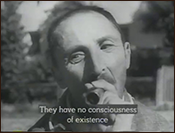
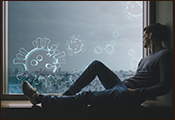



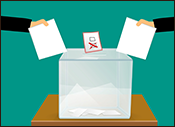
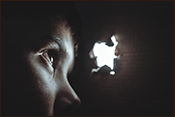
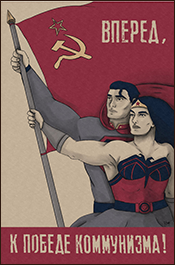

 I'm a Doctor of both Creative Writing and Manufacturing and Mechanical Engineering, a novelist, a technologist, and still an amateur in much else.
I'm a Doctor of both Creative Writing and Manufacturing and Mechanical Engineering, a novelist, a technologist, and still an amateur in much else.




